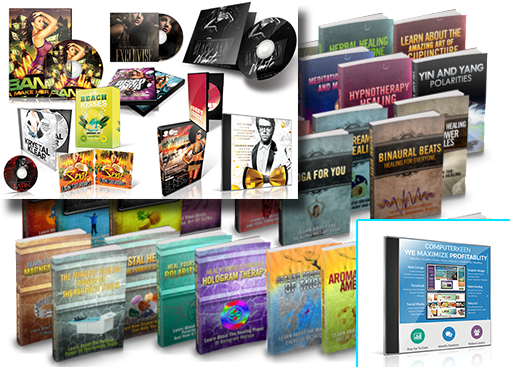Full Description
Fly Fishing - 101 Tips for Beginners | Digital Download
Use this content for anything you want such as populating websites, blogs, newsletter etc...
Fly fishing is a very popular fishing sport that can be both relaxing and challenging at the same time.
50 page guide, "101 Fly Fishing Tips For Beginners," spills the beans on all the expert tips, tricks, and techniques you need to know to skyrocket your fly fishing skills starting today.
And you can get my report in just minutes from now when you click the link at the bottom of this page and download it to your PC. Now you can start practicing right away!
...here is just SOME of the Pro fly fishing techniques you will find inside:
- The best way to practice at home (it's not just imaginary casting). (Page 2)
- What the pros do when they need to find a rod that's perfect for them. (Pages 2-3)
- How to change the hold on your grip under any fishing condition. (Page 3)
- 4 top bait choices no expert would do without. (Pages 4-5)
- The secret to keeping your dry flies floating higher and longer. (Page 5)
- 3 types of reels. (which one is right for you?) (Pages 5-7)
- 4 ways to tie the perfect, tight knot. (Pages 7-8)
- 6 things to look for when choosing the fishing line that gets the job done (and doesn't lose the fish) (Pages 9-10)
- 5 lures that any self-respecting fly fisherman will not be without. (Pages 10-11)
- How the pros notice patterns with the weather, water conditions and more to make sure they bring home more fish than their buddies. (Page 12)
- The secret to using sub-surface flies to reel in more fish. (Page 13)
- 9 tips from the pros to help you fish at night, from fallen trees, in coves and more. (Pages 15-16)
- The trick to reading the water like an expert who's been doing it for years. (Pages 16-17)
- The place where fish like to set up feeding stations (the perfect spot for your cast). (Pages 17-18)
- When night fishing is the only kind of fishing worth your time. (Pages 18-19)
- How to use perfect form when you cast. (Page 19)
- 6 rules of etiquette to follow so you don't step on any other angler's toes. (Pages 20-21)
- 4 ways to change the way you cast for changing conditions. (Pages 20-22)
- Why beginners like the slow-action rod (besides the fact that it's cheap), and what you should know before you spend your money on one. (Page 24)
- 4 more etiquette rules to keep you from embarrassing yourself and angering other fly fishers. (Pages 24-25)
- 4 safety steps to wading through water safely every experienced angler follows. (Page 25)
- Why the pros use more than one tackle box. (Page 26)
- The secret to wading without losing your footing. (Page 27)
- Little-known ways to choose your clothing so that pesky insects will stay away. (Page 28)
- 8 pieces of equipment you should never hit the water without. (Page 29)
- Why you shouldn't use one size fly all the time (and how to know when to switch it up). (Page 29)
- 10 expert tips for catching salmon by the bucket-load. (Pages 30-33)
- Why your rod matters and 3 other proven tips for fishing for trout. (Pages 33-34)
- Tricks you need to know for releasing trout (you may regret it if you don't know these). (Pages 35-36)
- 4 dead-serious techniques for scoping out where the trout are hiding and likely to bite. (Pages 36-38)
- How to outsmart the "smart fish" (trout). (Pages 38-39)
- 5 things you need to consider before you choose the perfect fly for trout. (Pages 39-40)
- Why smart beginning anglers make a list (not an equipment list) to help them succeed faster than their friends. (Page 41)
- The difference between fishing upstream and fishing downstream (and which helps you catch the fish). (Page 42)
- Why using a net wrong can lose your catch. (Pages 42-43)
- How to care for your fishing rod and reel so you don't trash your investment. (Pages 43-44)
- How to handle fish once you bring them to shore. (Page 45)
- How rock color can help a beginner learn to fish. (Page 45)
- 4 more tips straight from the mouths of experts that will help you become a better angler fast! (Page 46)
- Why letting fish see you isn't as bad as this… (Page 47)
- 6 great fishing areas (with lots of oxygen that attracts fish) that you should be on the lookout for. (Page 50)
Usage;
[YES] Can edit the product.
[YES] Can put your name as the author.
[YES] Can be broken down into articles.
[YES] Can be used as web content.
[YES] Can be used as eCourse or autoresponder series.
[YES] Can be translated to other language.[YES] Can be given away (in any format).
[YES] Can be added into paid membership sites.
[YES] Can be added into free membership sites.
[YES] Can be bundled or packaged.
[YES] Can be offered as a bonus.
[YES] Can be sold in any format.
[YES] Can be sold on auction sites.
[YES] Can be sold on forums.
[YES] Can sell Private Label Rights.
[YES] Can sell Master Resale Rights.
[YES] Can sell Basic Resale Rights.
[YES] Can sell Personal Use Rights.
[YES] Can be published offline.
[YES] Can do whatever you want with this product.
About Private Label Rights Articles
The license is used for various digital products such as articles, ebooks, software, graphic templates etc. Because there are many buyers of the same product, the price of a single unit is generally lower than if one would create a similar product from scratch (either by himself or by outsourcing). However, people can also purchase private label content that is limited in distribution, minimizing the number of competing marketers using the same content.
Private Label Content comes in many different formats, including PLR reports, ebooks, articles, graphics, templates and even videos.
While licenses differ with each author and seller, the basic premise is that the license permits buyers to re-brand the content under their own name and brand (excluding copyright). In general practice this means that the product can be modified, sold, resold or repurposed in many different formats. In some cases authorship on the original product is allowed and with unrestricted private label, buyers are often able to resell the same rights they've acquired although not all private label releases offer or permit license distribution or transfer.
Marketers use private label products for reselling under their own brands or in the case of written products for online marketing through channels like article directories, content syndication, ebook directories, slide-sharing websites and similar.
Private Label Content comes with different rights depending on the developer so it's important to thoroughly check each license prior to use, to become familiar with any restrictions that may be in place.
Source: read more...
Need custom designed eBook cover?
Get in touch and we will create one for you for only $10.






